The Childhood Struggles of INFPs
INFP children are some of the most emotionally rich, creative individuals you’ll ever meet. Their strong personal values, philosophical nature, and insightful way of viewing the world make them stand out from the crowd. They are seen as sensitive souls and are often more on the quiet side as children. Myers-Briggs® expert David Kiersey calls INFPs “The Healers” and it’s not hard to see why. They long to make the world a better place, especially for their family and for the people they care about. They are known for “championing” the downtrodden and taking up causes for the underdogs of the world. There are so many admirable qualities about INFPs, yet as children, they often face a unique set of struggles.
Want to know what your child’s type is? I have created a personality test to help you figure it out. Just remember this should be used as a guide and not definitive proof of your child’s type.
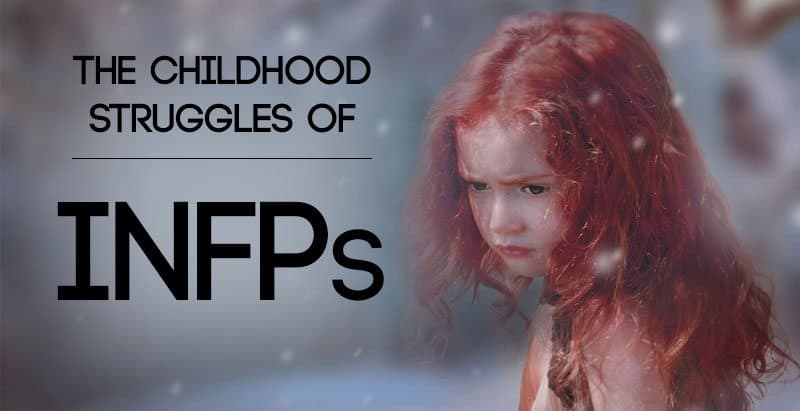
The Childhood Struggles of INFPs
INFP Children Feel Things Deeply
All children feel things deeply at times, but INFPs are especially sensitive. They are dominant introverted feelers; so their emotional lives are extremely important to them. They long for harmony and believe that everything has significance and personal resonance. Casual belittling comments, sarcastic jabs, or frustrated offhand glances can deeply unsettle the INFP child. Don’t mistake me. Many people confuse this sensitivity for weakness – it is not. Because of their sensitivity, INFPs make excellent counselors, and they are often selfless in their endeavor to make the world a better place. Joan of Arc was an INFP and I’ve never heard anyone call her a wimp!
Sadly, this emotional sensitivity and the strong idealism of INFPs can leave them feeling confused and shocked by the corrupt nature of the world. Schoolyard taunting, news headlines of war and famine, and often being told to ‘toughen up’ can make young INFPs feel that they aren’t meant for this world. David Kiersey says of INFPs, “Isolated by their seclusiveness and infrequency (around 1% of the general population), their idealism leaves them feeling even more isolated from the rest of humanity.” He goes on to say that they often experience a feeling of alienation which comes from an often unhappy childhood. They are dreamers who fantasize of a better world, who aren’t as skeptical of magic and ‘impossible’ realities. This love of fantasy and the intangible is often discouraged by parents and peers who may belittle the INFPs sense of wonder and imagination.
INFPs are extremely aware and sensitive to tension and conflict around them and become very upset when the ones they care about are angry or unhappy. They are gentle souls who aren’t harsh themselves and don’t respond well to harshness in others. Yelling and strict punishments are especially traumatic for the young INFPs. Because they are so private, they may not readily share their feelings or emotions with others, but bottle them up inside. They feel unable to share these intense feelings unless they are with someone who has gained their absolute trust. At the same time, they often feel things so deeply and intensely that they may react by crying very quickly. This often bothers and annoys them, because what they feel is so personal and deep and they don’t want the whole world to see it. For this reason, they may escape to a sanctuary like their room or closet to let their feelings out in private. Being told to ‘toughen up’ or to ‘stop being a crybaby’ is a harsh, damaging experience that many INFPs (especially male INFPs) have had to deal with. Their rich emotions should not be something they are made to look down upon or be ashamed of.
INFPs REALLY Listen
INFPs have an abundance of compassion and empathy. Their awareness of the meaning of things, their attentiveness to even the slightest of changes in someone’s tone or intent makes them excellent listeners. Dario Nardi, a UCLA professor and expert in the field of neuroscience said that INFPs are the consummate listeners – “They thoroughly engage all brain regions that process voice, words, and sounds; moreover, they may easily enter a unique whole-brain state when listening to other people.” He noted that most other types are eager to think up their own responses or arguments while someone else is talking, and only half-listen most of the time. INFPs are a different story. They will give you their entire attention and not worry about a response until they’ve heard you out fully. Their skill at listening and tendency towards introversion can cause people to push them to open up more or extravert more. Extroverted parents may feel that they need to force their child into more social situations and try to get them to talk more, leaving the INFP child feeling that there is something wrong with their thoughtful, quiet nature when in truth we could use a lot more listeners in the world.
INFPs See Creative Opportunity Everywhere
INFPs are often drawn to art and storytelling. They love fantasy and being allowed to be fully creative and spontaneous. This spontaneity and imaginative way of thinking can be seen as a problem by a highly SJ-geared learning environment. The majority of K-12 teachers are SJ personality types who learn through memorization and repetition, and they teach to this learning style as well. They also place a higher value on ‘practical’ subjects like math or English, and less on the creative pursuits of art, music, or theater. While INFPs can excel and even enjoy math or English, they learn better through creativity, imagination, and storytelling and get frustrated with memorization or repetition. During class, their imagination tends to wander to more personally meaningful topics or imaginative ideas. They get bored with routine and structure and want to be more inventive with their learning. They question the meaning of things and often see many alternative paths to learning and discovery. Because of this, they are often reprimanded in school for not paying attention, for not doing things ‘by the book’ or for getting distracted. In some cases, they are misdiagnosed with ADD because their imagination wanders to so many other areas.
On the other hand, in school INFPs are the third or fourth most likely to receive the “gifted” label. Certain teachers can see their creativity, their gift for language, and their curiosity and hone into that and the INFP can be intellectually unstoppable. Having the right teacher is especially important for an INFP child.
In Conclusion
As you can see, INFPs are often very gifted children with a knack for creating, empathizing, and understanding. If you’re parenting an INFP, try to be especially sensitive in handing out criticism or punishment. Try to do this privately, as INFPs are very private and will be shaken by public criticism. Try to praise their emotional intelligence, empathy, and compassion. Give them outlets for their imagination with plenty of opportunities to write, draw, read, and play make-believe. In school, help them to keep track of their homework as they tend to have harder time meeting deadlines and staying on task. Lastly, be honored that your child is one of the rare 1% with the deeply creative INFP personality.
Find out more about your personality type in our eBooks, Discovering You: Unlocking the Power of Personality Type, The INFJ – Understanding the Mystic, and The INFP – Understanding the Dreamer. You can also connect with me via Facebook, Instagram, or Twitter!
Other Articles You Might Enjoy:
10 Things You Should Never Say to an INFP
10 Surprising Truths About INFPs
Sources (These are referral links):
Neuroscience of Personality: Brain Savvy Insights for All Types of People
Nurture by Nature: Understand Your Child’s Personality Type – And Become a Better Parent
Type Talk: The 16 Personality Types That Determine How We Live, Love, and Work
Gifts Differing: Understanding Personality Type
Get Your Free eBook!

Subscribe to our newsletter and get an eBook packed with powerful parenting tips for each personality type! Enjoy 28 beautifully illustrated pages exploring the needs and strengths of all 16 personality types in childhood.


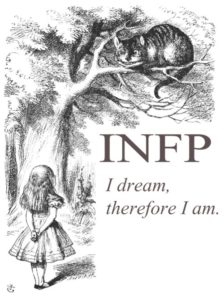


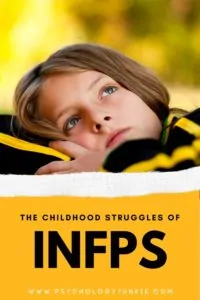
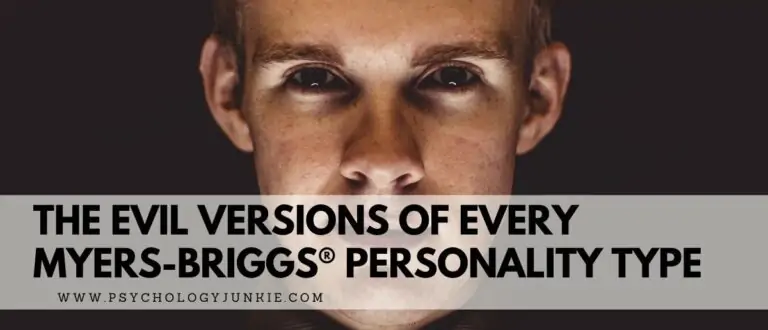
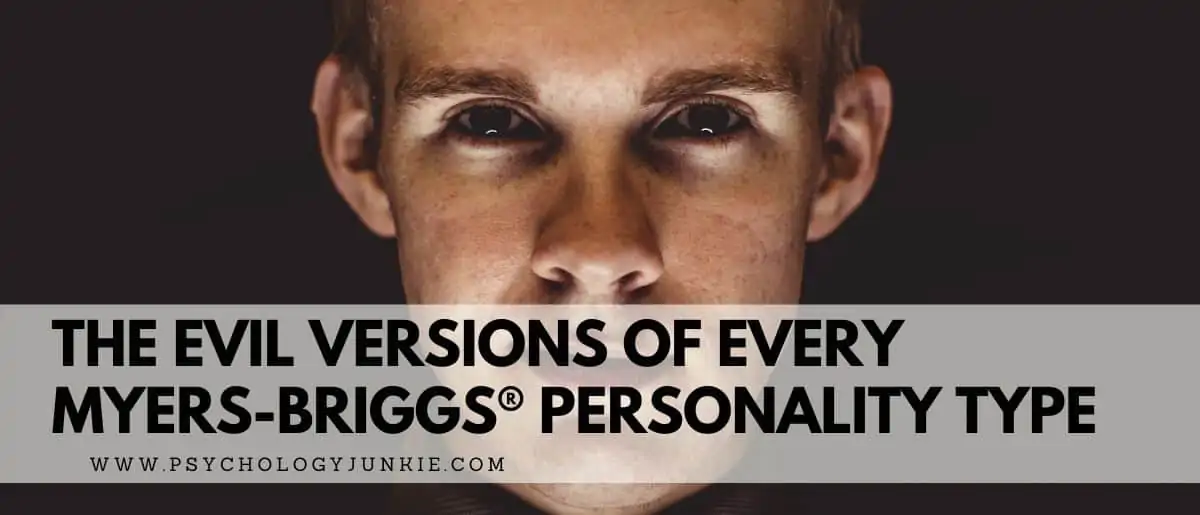


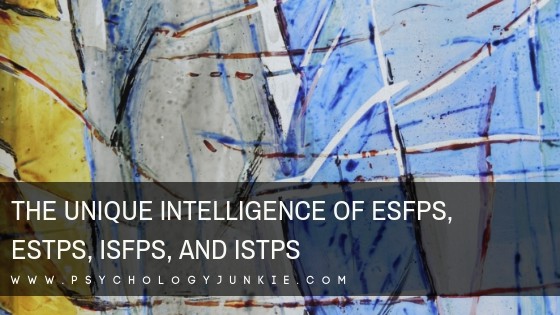



This article seems spot on as I am trying to better understand my teen and how our relationship developed. In the past, I would get so frustrated with my INFP child’s intense sobbing, I would tell her “knock it off” and walk away. I thought she was being a helpless female and wanted to prepare her to be a strong woman. I showed no sympathy. I think this has been my biggest parenting mistake with her. I should have swallowed my annoyance and at least sat quietly with her during those times of distress.
It’s so hard to parent exactly how our children need, isn’t it? I know every day I do things and I wonder if it’s right or if I made a mistake. Parenting is tough!! I’m sure if your INFP daughter knows that you love her, then that’s the big thing. My ENTJ did a lot of things that weren’t exactly nurturing to me as an INFJ, but I still love him and know he did the best he could. I’m sure your daughter knows that too!
I am an INFP in high school, and I can say that I would not blame you for being confused or frustrated. I will need time alone, and my mother keeps intruding, and when I am trying to call for support from her she doesn’t see it. The key thing, at least from my experience, in support situations, listen carefully to what we do and do not say. Personally, my life experience has caused me to be a bit reactive, more so than other INFPs, but in my case, if I ever get into an argument, what I say going into it, and what I say by the end of it are what I really feel. I often feel violated and I get aggressive when I feel like I have been wronged and I can sometimes say things I don’t mean, and I regret by the end of the argument. If we say we want to be alone, and we sound at all mad or angry, DO NOT constantly check on us. We like to deal with our anger alone so we don’t hurt anyone, and we can talk to ourselves. If we hare crying, and go to our room, pay attention to if we said anything. Often, in my case at least, if I need comfort badly but don’t want to feel as though I have to ask for it (bc I feel like it should be given all the time) I will purposefully not say that I want to be alone, and if someone comes in I don’t snap at them bc I really do want comfort, but don’t want to feel like I need to speak it. I hope that this help, sorry if I were to go further this would be a chapter book.
That ^ was 100% accurate and relatable!
so accurate and relatable it kinda hurts. I feel you. :’)
I relate to this so much! I just entered high school and I already relate to all of this however, i did do this in middle school as well
It’s good you recognize that. Please tell this to your daughter this if you haven’t already. My mother once left a group of 5 abandoned kittens to freeze to death and told me to “grow up” when I sobbed hysterically. I was about 9, and I’ll never forget it. She thought no more about it.
Another good article. Thought well enough of the info, that I posted your writings on my linkedin profile page.
what if… we’re all just INFPs who need the same things, i.e. love, attention, nourishment, and the way the world is set up means that people are so messed up that they seem all these other types when in reality they’re just messed up INFPs at heart, masquerading as the other types because that’s what our current society values?
A THOUGHT
I mean, no offence to the other types but INFPs are basically what we all should be, or aspire to be, and I don’t think it’s a coincidence that most people on the planet are our opposites… we value ESTJs etc in this society so obviously eveyone is going to try so hard to be that, or even be so hurt that they become it.
Take for example INFP females compared to INFP males, there are more females to males… you think that’s just the ‘way it is’ and that our society that is kinder to INFP females than it is to males hasn’t created this difference in ratio?
I’ve never felt so understood until I read this article.
I’m really glad that you enjoyed it! Thanks for reading 🙂
i dont feel this fully describe me , i was very good at language in school but incredibly good at math(one of the best in secondary ) , and in of highschool i was better at language because math was getting hard . so maybe i am intp .
my childhood spot on luckily my mother is an advocate personality that helped a lot
growing up in a family (and society) that has always mistaken my sensitivity for being spoiled, my daydreaming for laziness, and my being there for them for “hanging around”, i really struggled to be myself as a male infp, especially in my early years. still struggling with depression and anxiety in my 20’s, but today i have learned to accept myself the way i am, because for so long i tried hard to prove different groups that i am just like them, even through drug abuse for some time, and i never felt happy.
reading this really made me feel understood. thank you very much.